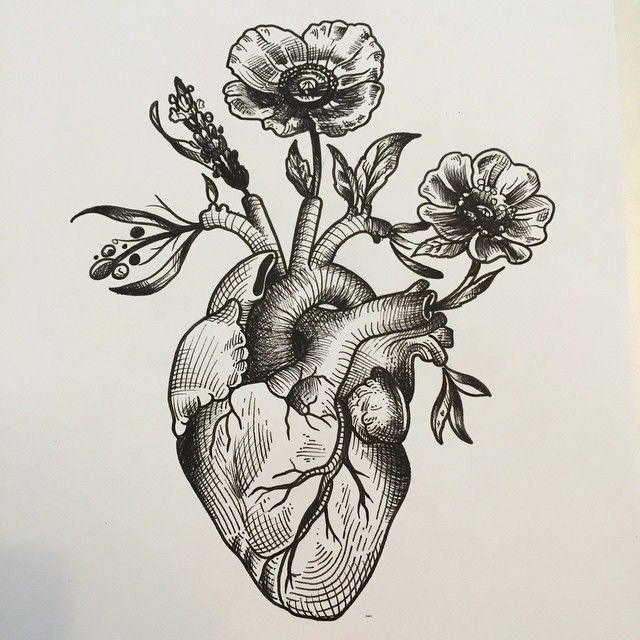March 2, 2022
Forgiving When We Can’t Forget

Her: “No, I don’t feel like forgiving him. He hurt me so bad and deserves it.”
Me: “How long do you think you will hold onto this resentment?”
Her: “I don’t know. I don’t want to feel like this, and I also can’t seem to let go of it.”
This was a conversation I had with a client a few years ago. She had a boyfriend that cheated on her, and she still felt the pinging resentment slush through her veins, tie knots in her muscles, and boil in her voice when she talked about it. She came to see me because she was tired of how she was feeling, but also didn’t know how to exist otherwise. Have you ever felt like that? She wasn’t alone (and neither are you), as I have had this convesation many many times over the years with different clients. I, too, have struggled with holding onto resentment. This struggle always comes back to the same question…
How do we forgive when we can’t forget what happened?
Growing up, I was taught forgiveness was the good thing to do. You forgive people for what they did. Jesus, Gandhi, Mother Teresa, and Buddah did it, so must be legit.
But if it’s so good, why do SO many of us struggle with it?!? Here’s what I’ve come to find…
- We have forgiveness backwards.
- In order to truly forgive, we need to redefine forgiveness.
When people hurt us, it hurts. We are wired to remember what hurts (whether conscious or subconscious) so we can prevent it from happening again. Our experiences matter. So how does forgiveness fit into the equation when trust is broken, integrity is compromised, we no longer feel safe, and we are about to go Jerry Springer on someone?
First, what is forgiveness…
I had to look-up forgiveness in the dictionary because what the heck is forgiveness, anyways? The definition goes as such: To cease to feel resentment against an offender. Some of us have been done dirty, and when we are betrayed, hurt, or disregarded, we feel something about it because our hearts care. It matters how we are treated, because we inherently matter. Mistreatment can mean anything from someone stained your favorite dress, to being mean, to cheating, to murder. The spectrum of offense and resentment is vast, and what I am about to write applies to all of it.
Next, what is resentment...
Resentment is the unpleasant emotion related to perceived unfairness or injustice. Many of us think it is anger, and in a way it is similar in its intensity, but emotions researcher Dr. Marc Brackett will actually have you know the ROOT of resentment is (drumroll please)… envy. Dr. Brene Brown says envy is when we want what someone else has. I preach how emotions are data that tell us what’s going on in our hearts. Envy is simply data that tells us, “Oh, I do not have that right now but apparently want it.” That’s good data to have to know yourself and your heart.
So, resentment, at its root, is envy, not anger. When we feel resentment towards someone, it is actually because they are mirroring to us what we deeply want and desire. We can compute the emotion more accurately knowing that information. Let me give you a couple of examples from my own life.
In a former relationship, I resented my partner for consistently standing up for one of his family members (whose behavior was consistently inappropriate), and didn’t stand up for me and my perspective in those moments when I was calling out the behavior that was toxic. I was seething everytime this happened. I didn’t understand emotions at the time, but what was really going on is that his lack of support was not making me resentful, but my need and desire of support being unfulfilled was making me resentful. Underneath the resentment, I was envious that his family member was receiving support where I wasn’t. I craved it so badly, so my resentment was strong.
Envy is our ally in that it shows us what we truly desire. I desired to be unconditionally supported, heard fully, understood deeply, be revered consistently. My client above had resentment with her ex because her desire was being treated and loved like a queen, and cheating is the opposite of that experience. Our desires/needs are real and valid, and our emotions, like resentment, give us data into what they are and aren’t. This data matters, as it’s the intelligence of our hearts talking to us. Listen.
Redefining forgiveness.
I let the emotions be the data to tell me the story of my own heart, my desires and needs. I started to really own my desires, my needs, and give them reverence. When I did this, I noticed I started to see the offender differently. It started to shift my perspective and understanding.
I learned that forgiveness wasn’t about the act of the other, but how we are relating WITH ourselves and the other who transgressed.
Forgiveness isn’t letting people off the hook for what they did or didn’t do, but really coming into ACCEPTANCE within ourselves that their energy or their actions weren’t or can’t be what we needed. Forgive people for what they are and what they’re not, where they are and where they’re not, love big, and set boundaries accordingly.
Forgiveness is letting go and accepting the person where they are, NOT their behavior. This enables us to step up and be the person we need to be for ourselves in that moment. Acceptance means I acknowledge, “This is where they’re at. This is where they’re at. This is where they’re at.” In addition to acceptance, we get to own what we need, own it BIG, and let go of people when they can’t meet us there. Easier said than done though. Sometimes we get stuck and don’t know how to let go even though we want to, and I’ve got some insight into why that is.
Why we get stuck in resentment when we don’t want to.
The thing I’ve come to find, after helping thousands of people heal their subconscious nervous system and emotions, is we get stuck holding onto resentment because we subconsciously (or consciously) think it protects us from further harm, or we think justice is served in its presence.
Whenever I was healing resentment with clients, I found that when we got to the root, people thought the resentment served them. We don’t let go of something if we perceive it serves us. One reason they were holding onto it is because it put a protective wall around their heart. It’s the defense mechanism, “If I’m already hurt and mad, you can’t get close and there is a wall between us. You can’t hurt me again because I’m already hurt. Now I’m in control.” The other reason to hold onto it is because it seems like justice. “If I’m mad, that’s appropriate, and forgiving would be soft. I can’t feel forgiveness or else it’s like you’re getting out of jail free. Justice is hard, not soft.” Both protection and justice serve us, so in order to get unstuck and let go of resentment, we need to embody that there is another way to be protected and for justice to prevail, sans resentment. When we can find other tools to serve us, we can let go of old ones that don’t.
How to feel resentment and the key to releasing it.
First of all (and I cannot emphasize this enough), you need to give yourself permission to actually FEEL resentment. Many of us didn’t have the space to feel resentment as kids and have learned to numb, spiritually bypass, feel ashamed, and disregard resentment. The key is to slow down, take time to feel, give it reverence, acknowledge it, collect the data from what the resentment is telling you, thank it, and start to release it. Emotions want to be seen and heard, so if you’re numbing them, they’re going to linger until you do. That’s the first step to easier releasing. Remember, they’re just data, so don’t judge them. You are NOT a bad, less conscious, or unloving person because you feel resentment.
Next, the key I have found to releasing resentment is engaging in the process of what I call radically loving boundaries.
Radically loving boundaries are the limits we set in place to protect us from others’ behaviors that not serve us, while welcoming in the desired energies we are seeking that do serve us. It’s a blockade and wide open door simultaneously that’s selective to what we choose. It is connection to self over controlling others.
Radically loving boundaries do NOT control others’ behaviors, but invite the people and energies in that can meet us where we connect and desire in our hearts. People will step up or step out. How this looks is unique to every person and every situation. My radically loving boundaries are wide open to what is loving, protective to what is not.
They cannot occur without compassion and empathy. First, we have to practice compassion and empathy for ourselves and our hearts. We are doing the best with where we are at. Once we have compassion and empathy for ourselves, we can give it to others. When we need to forgive people, it is most often they did something out of a closed off heart and couldn’t meet us at ours when we needed it. I have come to find that I can demonstrate radically loving boundaries with compassion and empathy when I realize their actions have nothing to do with me, but the struggle they have with their own heart. My former partner didn’t support me not because he didn’t love me, but because his heart was scared what his family member would do if he didn’t comply to pleasing them. My client’s partner didn’t cheat because he didn’t love her, but because his heart was afraid of intimacy and bailing felt more comfortable than facing it. These are NOT excuses, but understanding. And in that understanding, we can put boundaries in place and teach others how to treat our hearts.
It took me a long time to figure out what that looked like and felt like. Now I am teaching others to embrace the process for a better life and healthier heart.
While practicing radically loving boundaries, people get to be where they’re at, and I get to be where I’m at. Where someone is at is NOT their potential… it’s simply where they are on the journey. Sometimes we can dance together close, sometimes we can dance together a little further away, and sometimes the boundaries need to be so strong that we cannot dance together at all. I cannot tell you how painful it is to intially put up radically loving boundaries with someone we have let into our hearts. It can be brutal, but trust the process. Over time you start to connect to the love you feel to them without your own heart getting hurt. Doesn’t mean you won’t miss being closer, and sometimes that missing never goes away (with some people I will probably miss being closer forever and need to grieve that, and you will, too). It means you love big and you care. Be proud of that.
When we practice radically loving boundaries, it provides us the safe space to love ourselves fully, love the other fully, and space to forgive because now we are safe and protected. As far as justice goes, my invitation is to trust the perspective that the greater energy at large will work it out. It may not be on our time or the way we thought it should look, but the more we can stop trying to be in control, the more free we are, and the more it works itself out. Things and situations have worked out in my life better than ever when I let go of trying to be in control and trust the power of my open and protected heart.
Why holding onto resentment hurts us.
It’s holding on to resentment that hurts us, not the feeling itself (although it is mighty unpleasant to feel). Not only that, old resentment hurts others that didn’t do the intial hurting. We risk projecting old hurts onto them by lashing out, or they can’t access our hearts because we have walled it off with resentment. Both create disconnect, and that’s painful. We often think resentment punishes the other, but ultimately it harms us and those we actually don’t have the resentment with. Lastly, research has found that holding onto resentment increases depression and chronic diseases. It takes a toll on our body and minds over time, and that’s not guessing, that’s science. My invitation is for you to start seeing where it has served you, and where it no longer serves you, so you can start to let it go. Holding onto resentment is like drinking poison and expecting the offender to die.
Forgiveness is a journey, so don’t rush to the destination.
Forgiveness, at the end of the day, is about us accepting people where they are, owning what we need and desire, and putting up boundaries around what we do not. Forgiveness = freedom for ourselves, freedom for others. Releasing resentment and forgiveness doesn’t necessarily happen overnight, but as long as we’re moving through it with intention, we are healing and working toward freedom. In my own forgiveness journeys, the process of radically loving boundaries takes deep intention, and has much trial and error. This isn’t about perfection or “achieving” forgiveness, but rather showing up in the process, being brave, and journeying with your heart.
If you’re not ready to engage in forgiveness, it’s OK. Just remember, this is about you and freeing yourself. You can be free and protected, and justice can happen all the same. This is an invitation to free our hearts, creating space for love and life going forward. And you are worthy of that.
Take care, love big, be safe, be free,


ps- YOU’RE INVITED TO JOIN MY TRIBE OF IGNITERS HERE. OR DOWNLOAD MY WELLNESS E-BOOK HERE.
MORE BLOGS BY ME. GRAB A BEVERAGE AND EXPAND YOUR MIND:
Wow. What a timely article. I’ve been holding on to resentment towards my ex spouse’s partner. I blame him for getting in the way of restoring my marriage and for being less of a man than I expected him to be. How crazy does that last part sound when I say it out loud! I know that this unforgiveness is holding me back from my next truly fulfilling relationship, but I still struggle finding a way to lay down my arms so-to-speak. Thank you for this brilliant insight.
Hey Kevin, thank you for sharing where you’re at with this. You are on the path… own what you need and want, and open your arms wide to those energies. It IS a process, so be gentle and fogive and give yourself grace in this process. Thanks for reading, and keep on keeping on!- Erika
Thank you for this! SO many insights I hadn’t thought about.
I’m so glad, Crista! Thanks for reading!